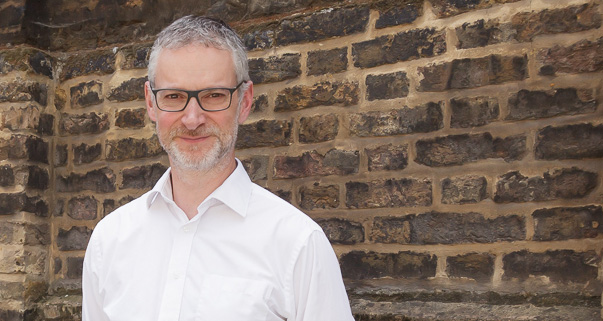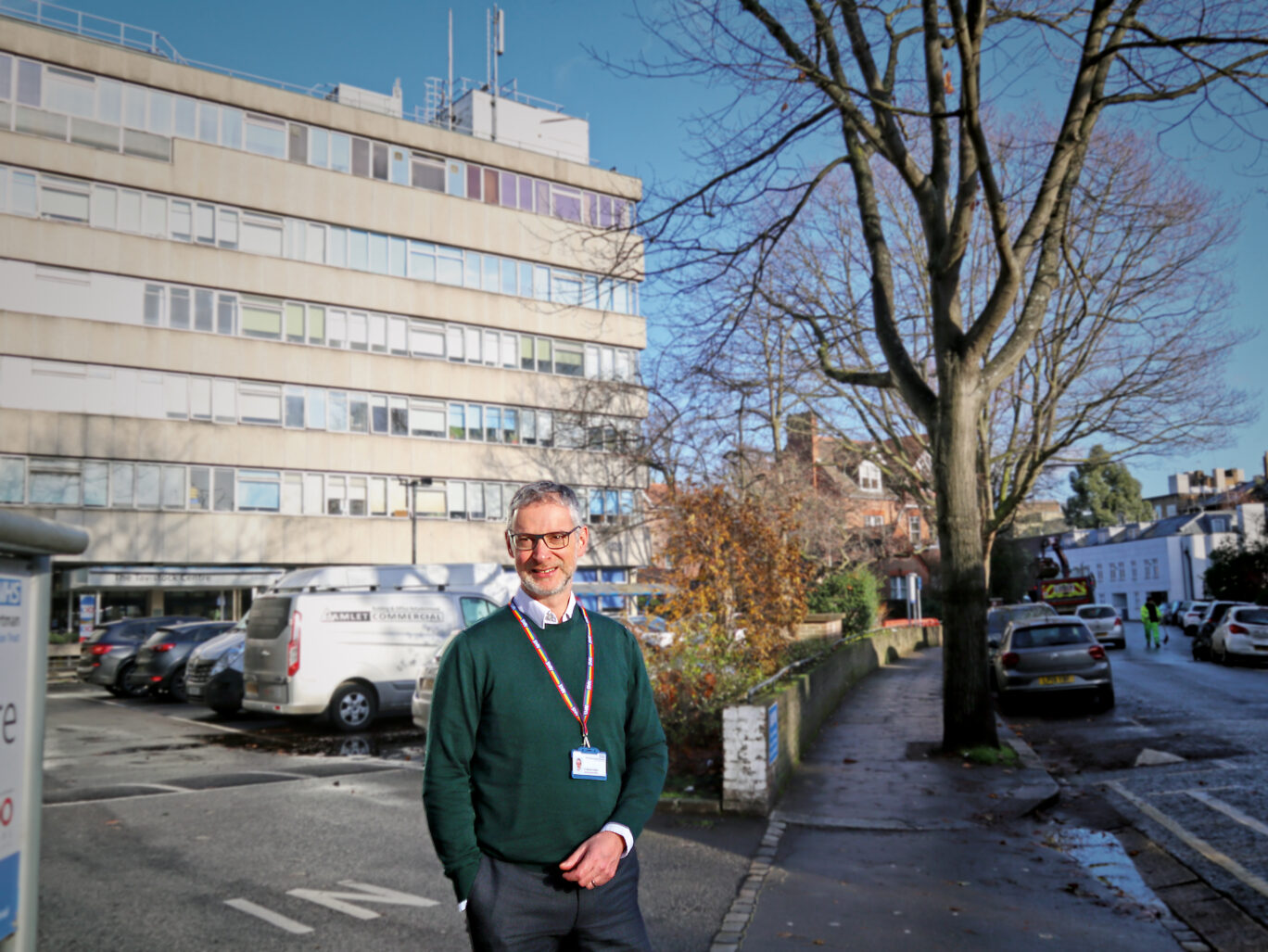Introduction to Michael Holland, new CEO

Michael Holland is a Londoner through and through. He was born just south of the river in Lambeth and grew up in south west London. He comes to us from the South London and Maudsley NHS Foundation Trust, where he was Medical Director and worked for almost 20 years.
Michael comes from a medical family. His father, Walter Holland, who fled the Nazis from the Sudetenland of Czechoslovakia to Britain in 1939, was a major figure in public health research. He was an academic, an epidemiologist, Emeritus Professor of Public Health Medicine at the London School of Economics, John Hopkins and St Thomas’s from the late sixties until the nineties. His mother worked at Hammersmith hospital in research.
Michael himself qualified as a doctor before going into psychiatry. He is a visiting senior fellow on the subject of quality management in healthcare at the London School of Economics and a fellow at the King’s Business School. Michael also chaired the Medical Directors committee of the Cavendish Square Group, which represents the London mental health trusts. Michael is also a family man and is married with three children aged eight, nine and 16.
Michael said, “I’ve lived in London pretty much all my life apart from a period out for university and my first medical posts, which were in Hereford and Canterbury. Then I came back to London and started working near here at the Whittington for nine months in A&E, when I was thinking of becoming a surgeon. I quite liked trauma and bowel surgery, of all things, but then I decided ‘no’ I wanted to do psychiatry. So, I did my first bit of training at St George’s in south London and then moved into a research fellowship on end-of-life care, with the aim of doing a PhD.”
When asked why he chose to go into psychiatry Michael says, “Probably the wrong reasons – I quite enjoyed coffee and chatting. The right reason was that it was one of the few branches of medicine where you get to use history taking, understanding the story and the narrative of the person’s life and the examination of the individual, rather than just having a set procedure of diagnostic tests that gave you a definitive answer.
“There’s a certain amount of ambiguity over what you were doing and it felt two me as almost, dare I say, one of the last branches where you were left still working through and without that lack of clarity, that you might get through biological investigation as in most other areas of medicine.
“As a medical student I had been very interested in the social and psychological aspects of illness. At that time, I did quite a lot of work around the long-term conditions in children and the effect on their education and psychological wellbeing.
“I was a rehabilitation psychiatrist for the first eight years of my consultant career and was very much trained in social psychiatry and the role of work and education as treatment modalities, alongside medication and psychological approaches. Then I moved back to liaison psychiatry for the last 12 years, though I was only doing a small amount of clinical work, to end of life work and palliative care in cancer, which is where one of my interests lie. I particularly like the medical aspect of it.”
Michael has spent much of his career at the Maudsley and he says, “A lot of the consultants there had trained at the Tavi and spoke very fondly of their time at the Tavistock. When it became known that I was coming here, I was surprised by how many got in touch with me expressing a fondness for the Tavi and told me about what a good time they had had here and how much they had learned here. One had even set up a psychoanalytic psychotherapy centre based on the old Tavistock model.”
Michael also has a background in Quality Improvement (QI) and says, “It’s a useful methodology. It’s a method of bringing about change. If we don’t have an improvement process in the organisation, how do we improve? How do we demonstrate year on year improvement for our patients? Internally every organisation needs to have a learning system that drives it to improve. QI is about improving services.
“For instance, I have run programmes about how to reduce or eliminate waiting times. My very first one was at the Brompton and about reducing waiting times at a lung clinic there and we got the internal waiting time down to zero, so that patients had no waits when they arrived in the hospital. But it was an iterative programme to get to that.

When asked about what goals he had as a new Chief Executive, Michael said, “In the longer term its about ‘what is the vision?’ How do we make the Tavistock remain pertinent and important and build its reputation nationally and internationally? We are already an important player in the national context of mental health. The Tavi punches well above its weight. We need to make use of that and build on that. We have to establish ourselves as a quality deliverer of mental health services and our reputation precedes itself. But we are going to have to evidence it. We can’t sit here and say, ‘Well we’re the Tavistock,’ without something to show for it, the outcomes we achieve. We have to get to a position where we stand out from the other organisations for what we do and not just on the historic reputation of the Tavistock.
“I think there are a lot of opportunities. There are things in education that we could be doing more of – areas around private sector markets, but also other opportunities within health, such as nursing where there is a growing demand for this kind of education offer and in things like continuous professional development. Those areas are particularly growing. There is a huge amount of demand for our education offer full stop. But there is also room to branch out into slightly different things than we have been doing, also internationally. Our number of international students has been growing year on year. I know we’ve done quite a bit of work on this, but what can we do to build on this?”
Finally Michael shared, “I’m really pleased to be here. I’m excited. It’s a good time in many ways. We have an opportunity to tell a new story about the Tavistock and set a new direction. Clearly, that’s not just for me, it’s for everyone, for the future of the Trust, for our patients, staff, students, and alumni.”